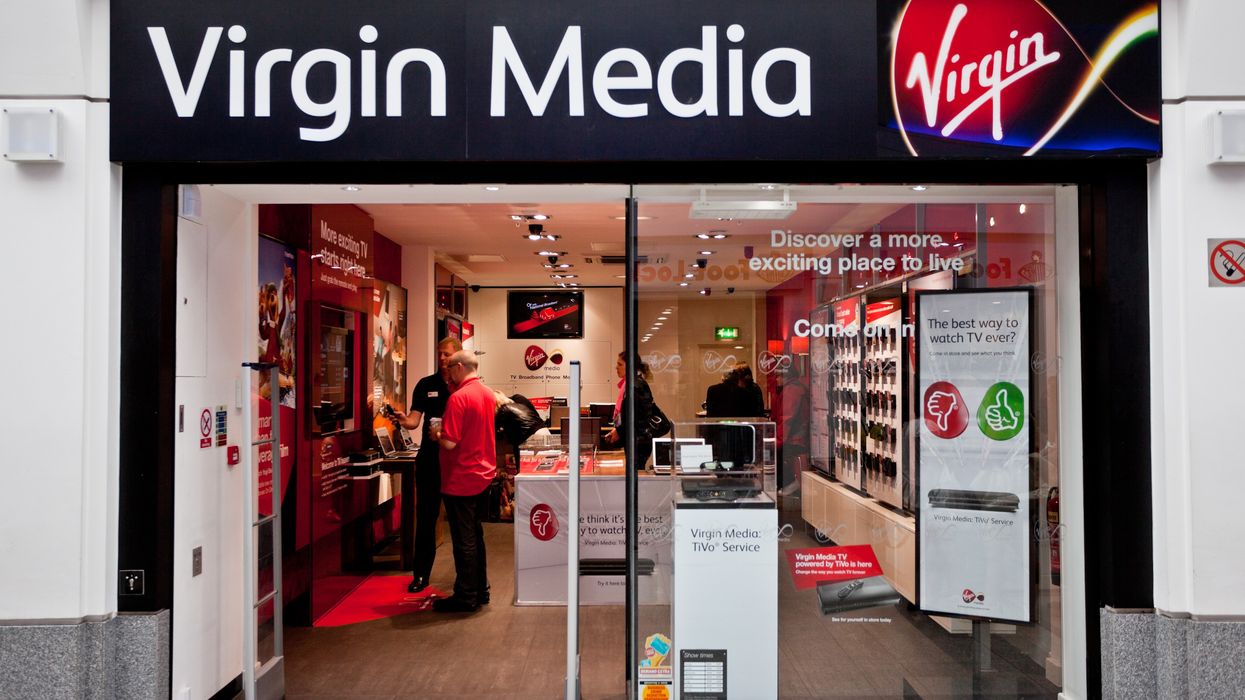The main union representing journalists in Britain is calling on the government to triple a tax on global tech giants to support the industry, as it faces fresh shocks from the coronavirus outbreak.
Sector analysts predict that as many as 5,000 journalists could lose their jobs without state intervention, as the national lockdown hits already declining print sales and dwindling advertising revenue.
The National Union of Journalists (NUJ) said urgent action was now needed, and the government should look to increase its new digital services tax on tech heavyweights to fund a wider, more long-term "news recovery plan".
"It has been estimated that the current proposals by the UK government could raise as much as £500 million ($620 million, 570 million euros) in a year," NUJ assistant general secretary Seamus Dooley said.
"That's the two per cent they plan. We're saying triple it. That would represent a sizeable immediate injection if treated as a windfall tax."
The digital services tax, which came into effect on April 1, targets search engines, social media services and online marketplaces of British users, provided the company's revenue is more than £25 million.
It is expected to raise £280 million in its first year and £500 million by the end of 2025, according to the Office for Budget Responsibility.
The levy was introduced after controversy about foreign-based online platforms such as Google and Facebook, which generate huge advertising revenues in Britain but pay relatively little domestic tax.
"There's very much common cause between employers and owners that effectively these are platform providers that are eating our lunch," said Dooley.
"They're reliant on the work of media organisations -- of journalists, photographers and videographers -- and the real challenge for media organisations who are dependent on commercial revenue has been the haemorrhaging of advertising to online."
- Layoffs and leave -
Broadcasters such as the BBC have reported record audiences while websites have seen a surge in traffic since the start of the outbreak, and Britain's lockdown which began on March 24.
Ian Murray, executive director at the Society of Editors, said the apparent increase in trust in traditional media was "a very thin silver lining from a horrible dark cloud".
But there remains concern about the economic and social fall-out on journalists, including freelancers not covered by government rescue plans.
Nearly 250 local newspaper titles closed between 2005 and 2018, and the current crisis has seen more than 2,000 mainly non-editorial staff at some 500 newspapers temporarily laid off, according to industry magazine Press Gazette.
Some companies are predicting multimillion-pound losses in revenue, have cut salaries or asked staff to work fewer hours and take unpaid leave.
Others have announced mergers or warned they could close completely.
Media research firm Enders Analysis has predicted advertising sales in the British press could fall by £330 million or 30 percent this year, and circulation could be cut in two.
Britain's culture secretary Oliver Dowden has warned the news industry could lose £50 million during the crisis, particularly as big firms had blocked online ads alongside stories on COVID-19.
- Existential threat -
The editorial director of the Yorkshire Post in northern England, James Mitchinson, said his team had been working hard to provide accurate, reliable information on the outbreak.
But he warned that many titles could close without "immediate" government support.
"The measures we have taken to cut costs don't make up for the reduction in ad revenue," he was quoted as saying in the Sunday Times recently.
"We need grants and a change to the furlough scheme to pay journalists -- key workers -- to work, not down tools."
Roy Greenslade, a former editor of the Daily Mirror and now media commentator for The Guardian, said the financial impact on companies and consumers could leave many organisations unable to recover when the lockdown ends.
Companies were likely to reassess their newsroom operations, print or online strategies and ultimately look at their bottom line, as they take a hit on the stock market, he said.
The period after the outbreak "will likely mark the final stage in newsprint's long decline", he predicted.
Dooley said the crisis was an opportunity to act, to prevent large parts of the country having no local media representation to hold public bodies to account or reflect community life.
"Doing nothing is not an option," he said.
"The irony is that journalism has never been in a more precarious position but also in our lifetime probably never more important."
phz/jj/wai
© Agence France-Presse
Add to cart Print Download Share this document Copy the content

















